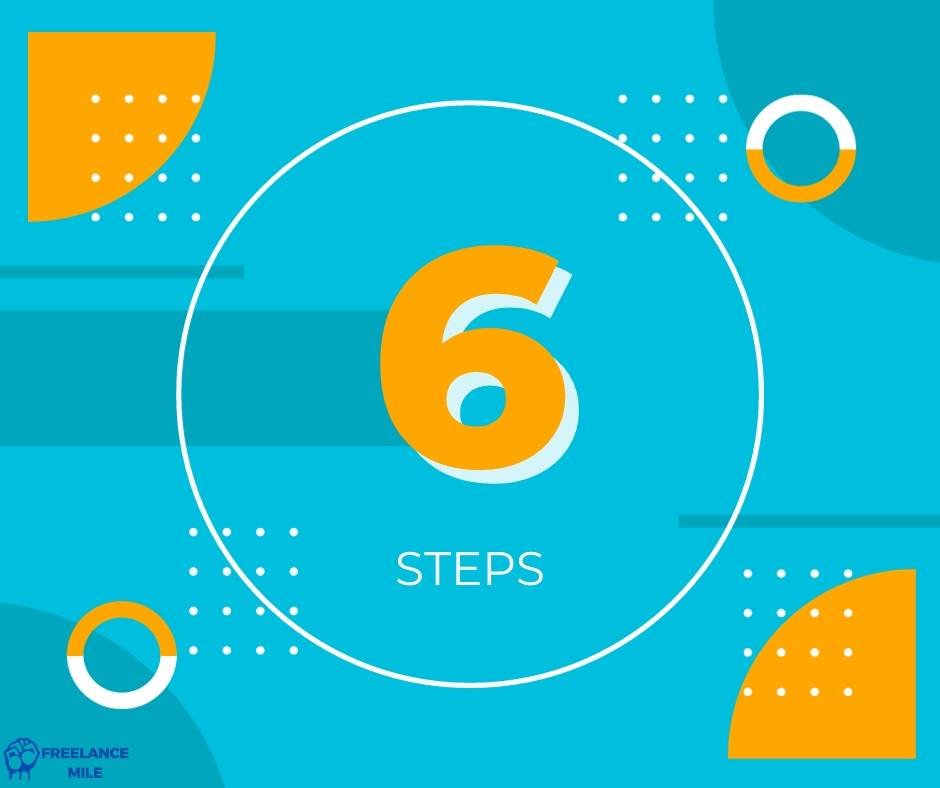Hello, fellow adventurers! Rohan here, your captain for today’s journey into the vast universe of freelancing. You might be asking yourself, ‘Can I do freelancing after 12th?’ as you step out of high school or explore ventures beyond the traditional 9-to-5 grind. Yes, you can definitely do freelancing after 12th.
Well, you’ve come to the right place! Welcome to freelancemile.com, your one-stop shop for all things freelancing.

What is Freelancing?
If you’re a recent high school graduate or a college student, let me introduce you to a word that might just become your new best friend: freelancing.
Now, you might be wondering, “Rohan, what on earth is freelancing?” Take a moment to grab a cup of coffee, sit back, and allow me to enlighten you.
Freelancing is the practice of working on a self-employed basis, offering services, often to multiple clients at a time. I know it sounds like juggling balls of fire while riding a unicycle, but stick with me, it’s not as scary as it sounds.
As a freelancer, you’re not tied to a single employer or a 9-to-5 grind. This means you have the flexibility to work on projects that interest you, set your own rates, and choose your own hours.
One day, you could be designing a website for an artisanal cheese shop in Wisconsin, and the next, you could be writing a blog post about the mating habits of the Siberian muskrat. There’s a word for this in freelancer lingo, and it’s called ‘variety’.
Freelancing Jobs for Students: Opportunities and Differences

So, you’ve got the theory part covered. But you may be wondering, “Rohan, what kind of freelancing jobs are actually out there?” Well, my friend, the sky’s the limit.
From content writing to virtual assistance, the world of freelancing is wide open.
But for students, the key is in finding freelancing jobs that complement their academic pursuits. For example, if you’re studying graphic design, why not look for freelance design jobs?
It’s a brilliant way to apply your academic knowledge, build a portfolio, and earn some coins on the side. Or if you’re a literature student, freelance writing or proofreading services could be your golden goose.
The Benefits of Freelancing
Freelancing offers more than just a way to earn extra money (though that’s a nice bonus). When approached correctly, freelancing has the potential to provide remarkable advantages.
Freedom & Flexibility: Freelancing gives you the chance to work from any location, at any time. You need a computer and internet access to work in your pajamas or on a Bali beach.
Experience & Skill Development: You can gain hands-on experience and build new abilities through freelancing. Every project presents a fresh challenge encouraging you to learn and improve.
Networking: Freelancing allows you to build relationships with various clients and professionals growing your network and creating possibilities for the future.
Why Choose Freelancing After Graduation?
Now, let’s address the elephant in the room. “Rohan, why should I consider freelancing as a career after I graduate?” Well, let me tell you, it’s not just because you get to avoid rush hour traffic (although that’s a pretty sweet deal).
Freelancing can be a promising career trajectory for a number of reasons. You get to be your own boss, choose projects that excite you, and set your own rates. And with the rise of remote work, the demand for freelance services is only set to increase.
So, whether you’re a student looking to gain experience, a recent graduate seeking a career path, or just someone intrigued by the idea of freelancing, take it from me, a seasoned freelancer from freelancemile.com, freelancing can be an empowering and exciting journey. And remember, the best time to start is now.
Career Happiness, Stability, and Growth in Freelancing

Let’s kick things off by debunking a common myth: freelancing is unstable. Well, not exactly!
Recent insights from Fiverr’s Fifth Annual Freelance Economic Impact Report, conducted in collaboration with Rockbridge Associates and the Freelancers Union, reveal a notable trend among independent professionals in the U.S. Not only did freelancers earn an impressive $247 billion in 2021, but they also reported unprecedented levels of job satisfaction.
This year, 75% of freelancers expressed high satisfaction with their work, a noticeable increase from the previous year’s 70%. Interestingly, over 80% of these freelancers believe their satisfaction surpasses what they would experience in traditional employment settings, in stark contrast to the 61% satisfaction rate among traditionally employed individuals.
Surprised? Don’t be! Here’s why:
Diversified Client Base Equals Income Stability
As a freelancer, you’re not tied to a single employer. Instead, you have a diversified client base. Think of it as having multiple mini-employers. If one client relationship ends, you’re not out of work. You still have other clients to fill the gap.
It’s similar to the concept of diversification in investments – spreading the risk makes for a safer bet.
This diversified client base acts as a safety net, providing more income stability. So the next time someone says freelancing is unstable, tell them it’s like being a savvy investor. It’s all about diversification!
Control Over Workload, Income, Time, and Location
If there’s one thing freelancers love, it’s freedom. And not just the freedom to work in pajamas (though that’s a big plus).
Choosing Projects and Clients
When you’re freelancing, you’re the boss. You get to choose who you work with and what projects you take on. No more being stuck with tasks you despise or clients who make you cringe. Now, you’re in the driver’s seat.
Control Over Income & Rate Increases
Ever wished you could give yourself a raise? As a freelancer, you can! You set your rates and negotiate your pay. No more waiting for that elusive annual review. If you want a raise, you make it happen.
Flexibility in Time and Location
Say goodbye to the boring 9 to 5 work schedule. As a freelancer, you decide when and where you work. Want to take a mid-afternoon break for a yoga session?
Go for it! Fancy working from a beachside cafe? Sure thing! As long as you meet your deadlines, the ‘how’ and ‘where’ is up to you.
So, fellow students and recent grads, are you ready to take the reins of your professional life? With freelancing, you’ll not only find career happiness and stability but also the freedom to control your workload, income, time, and location.
Who knows, your freelancing journey might just be the mile marker on your road to success. Remember, at freelancemile.com, we’re with you at every step of your freelancing journey. So, are you ready to take the leap?
6 Steps to Kickstart Your Freelance Career After College

Stepping out of the comfort of structured academia into the vast world of freelancing can seem daunting. But as your trusty guide at freelancemile.com, I’m here to assure you that it doesn’t have to be. Let’s walk through six steps to help you transition from dorm room to home office (or coffee shop, if that’s more your style) with ease.
Identifying Your Marketable Skills
Before you dive headfirst into the freelancing ocean, it’s crucial to take a good hard look at your skillset. Decide what you’re genuinely good at, what you enjoy doing, and what others are willing to pay for.
If you’re a whiz with words, consider freelance writing or editing. If you’re more of a numbers person, freelance accounting or data analysis might be your calling. You might be surprised by how many of your skills are marketable. And remember, just because you learned it in a classroom doesn’t mean it can’t be put to use in the real world.
Researching the Freelance Market
It’s time to put on your detective hat and investigate the freelance market once you’ve identified your skills.
Find out who’s hiring freelancers with your skills, what they’re willing to pay, and what they’re looking for in a freelancer. Check out popular freelance platforms like Upwork, Fiverr, Freelancer.com, Guru.com and others.
You can also look at job postings on LinkedIn or Indeed. This step will give you a clear picture of your competition and potential opportunities.
Creating a Strong Portfolio
The exciting part is here – it’s time to showcase your abilities. Your portfolio is essentially your sales pitch to prospective clients. It’s where you showcase your best work and demonstrate your skills.
If you’re a writer, your portfolio might include blog posts, articles, or essays you’ve written. If you’re a graphic designer, it could contain logos, illustrations, or website designs. Whatever your field, make sure your portfolio presents your work in the best light possible.
Setting Competitive Prices
Deciding how much to charge for your services is a delicate balance. You don’t want to undersell your skills, but you also don’t want to price yourself out of the market.
Research what other freelancers with similar skills and experience are charging. Don’t forget to take into consideration factors such as the complexity of the project, the time it will take, and any additional expenses you might incur.
Marketing Yourself and Finding Clients
You’ve identified your skills, researched the market, created a portfolio, and set your rates. Now it’s time to get out there and find some clients.
Marketing yourself as a freelancer is a multifaceted process that involves networking, social media marketing, and good old-fashioned word of mouth. Don’t be shy about letting people know what you do and how well you do it.
Scaling Your Freelance Business
Once you’ve got a few clients under your belt, it’s time to think about scaling your business. This could mean hiring other freelancers to help you with your workload, expanding your services, or increasing your rates.
Remember, freelancing isn’t just about working for yourself. It’s about building a business that can grow and evolve with you.
Freelancing Fields and Opportunities
From online marketing experts to data entry pros, the freelance world is full of chances for every skill set. Whether you’re great with words or excel at spreadsheets, you’ll find a freelancing area that fits you.
Here are some of the most sought-after freelance skills:
- Full Stack Development: This skill matters because it covers both front-end and back-end web development. People who can do this build entire web applications, which makes them flexible and valuable to employers.
- SEO (Search Engine Optimization): SEO pros help websites show up higher in search results, which is key for any business online. To get good at this, you need to know a lot about how search engines work and stay up-to-date with what’s new in digital marketing.
- Email Phone, and Chat Support: Companies want people with customer service skills those who can handle emails, phone calls, and live chat well. This job plays a big part in keeping customers happy and making sure they have a good experience with the company.
- Graphic Design: The growing need for digital content keeps graphic design a top skill. This field covers many areas, from making visual content for websites to designing marketing materials.
- Accounting: Companies of all sizes need to manage their finances, so accounting skills are always in high demand. Freelancers who know accounting can help with bookkeeping, analyze finances, and even plan financial strategies.
Besides the skills we talked about earlier here are five more freelancing skills that are in high demand:
- Virtual Assistance
- Data Entry
- Mobile App Development
- Social Media Marketing
- Video Editing
Are you ready to swap your graduation cap for a freelancer hat? Keep in mind, all freelancers started somewhere, and these six steps will help you get started on building a successful freelance career. Time to get out there and start freelancing!
Elevating Your Freelance Business: Beyond the Basics
With your degree, skills, and initial freelance success in hand, it’s time to elevate your freelance game. Think of this phase as an upgrade to your dream house, where you add the finer details that make it truly yours.
Refining Your Service Offering: The Art of Specialization
Now that you know the ropes, refine your services. Are you the go-to expert for technical content, a master of digital design, or a wizard in web development? Hone your craft and specialize. This isn’t just about what you do; it’s about being the best at it.
Enhancing Your Online Presence: A Portfolio That Speaks Volumes
Your website or portfolio is your digital handshake. It’s time to evolve it from a simple introduction to a compelling story of your expertise and experience. Ensure it mirrors your growing skills and the unique flair you bring to the table.
- Update your showcased projects: Regularly refresh your portfolio with your latest and most impressive work.
- Revamp your ‘About Me’ section: Let it reflect your journey and the professional you’ve become.
- Streamline communication: Ensure your contact methods are efficient and client-friendly.
Mastering the Freelance Platforms: Finding Your Perfect Match
You’re familiar with platforms like Upwork, Fiverr, and LinkedIn. Now, it’s time to use them strategically. Identify which platforms align best with your refined services and focus your efforts there.
- Analyze platform dynamics: Understand where your specialized services fit best.
- Build a strong presence: Tailor your profile to highlight your unique skills and successful projects.
Scaling Your Operations: Smart Growth Strategies
As your client base expands, consider smart ways to scale. This might mean collaborating with other freelancers, automating certain tasks, or even starting a small agency.
Raising Your Rates and Enhancing Your Skills: Level Up!
As your experience grows, so should your rates. It’s essential to continually enhance your skills and stay on top of industry trends. Remember, the freelance world is a competitive one – equip yourself with the strongest armor (read: skills) you can!
Freelancing Insights and Advice: Learn From the Pros
There’s no better way to learn about freelancing than from seasoned freelancers. Listening to their insights and advice can save you from common mistakes and help you navigate the freelance maze. Remember, every pro was once a newbie!
Tips for Success as a Student Freelancer: Balancing Books and Business
Starting a freelancing career while in school is tough. It needs discipline, organization, and creativity. Here are some tips to help you balance school and freelancing:
- Prioritize and Plan: Start by planning everything. Use a calendar or planner for school and work deadlines. This helps you know what to do first.
- Set Realistic Goals: Be true to yourself about what you can do. Set goals for school and work that you can reach. Too much work can make you tired and hurt both areas.
- Create a Dedicated Workspace: Make a separate space for studying and work. This helps you focus better and stay organized.
- Use Time Management Techniques: Try the Pomodoro Technique or time blocking. Set times for studying and working. This helps you focus on each task.
- Leverage Technology: Use apps and tools for managing tasks and reminders. Tools like Trello or Asana can help you stay on track.
- Communicate Your Availability: Tell your clients you’re a student. They will likely understand and set realistic project times.
- Seek Freelance Work That Complements Your Studies: Try to find work that matches your studies. This makes work more fun and helps you learn more.
- Take Care of Your Health: Don’t skip sleep, exercise, or healthy food for deadlines. Good health is key to success in school and work. Neglecting health can slow you down.
- Network with Other Student Freelancers: Talk to other students who freelance. Sharing tips and stories can help a lot.
- Reflect and Adjust Regularly: Check how you’re doing often. Be ready to change your plan to work better and feel less stressed.
Remember, balancing school and freelancing is all about good time management, setting realistic goals, and keeping a healthy life. With these tips, you can do well in both areas.
Financial Independence Through Freelancing: Say Goodbye to Ramen Noodles!
Freelancing can be a path to financial independence. With hard work and determination, you can turn your skills into a profitable business. So, say goodbye to ramen noodles and hello to financial freedom!
Remember, the path to freelancing success, especially if you’re questioning ‘Can I do freelancing after 12th’, is full of learning opportunities. Freelancing jobs for students offer a unique chance to gain experience and independence. Happy freelancing.
Common FAQ About Freelancing: Myth Busting Time
Freelancing is shrouded in myths and misconceptions. It’s time to bust those myths and answer some common questions. No, freelancers don’t work in pajamas all day, and yes, they do pay taxes!
Kick-Starting Your Freelancing Journey
Now that we’ve debunked the age myth and identified what it takes to qualify as a freelancer, let’s talk about taking the leap. Remember, every journey begins with a single step.
So, take that step today.
Start exploring, learning, and experimenting. And most importantly, don’t be afraid to make mistakes. After all, they’re the stepping stones to success.
Welcome to the freelancing world, where every day is a new learning opportunity and where you’re the boss. Happy freelancing!






